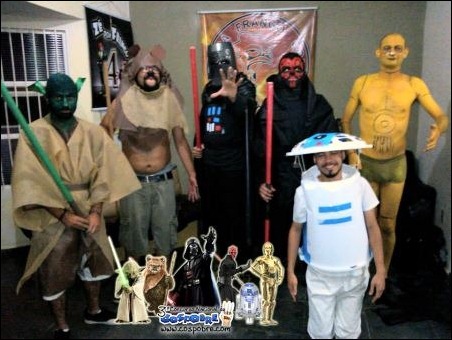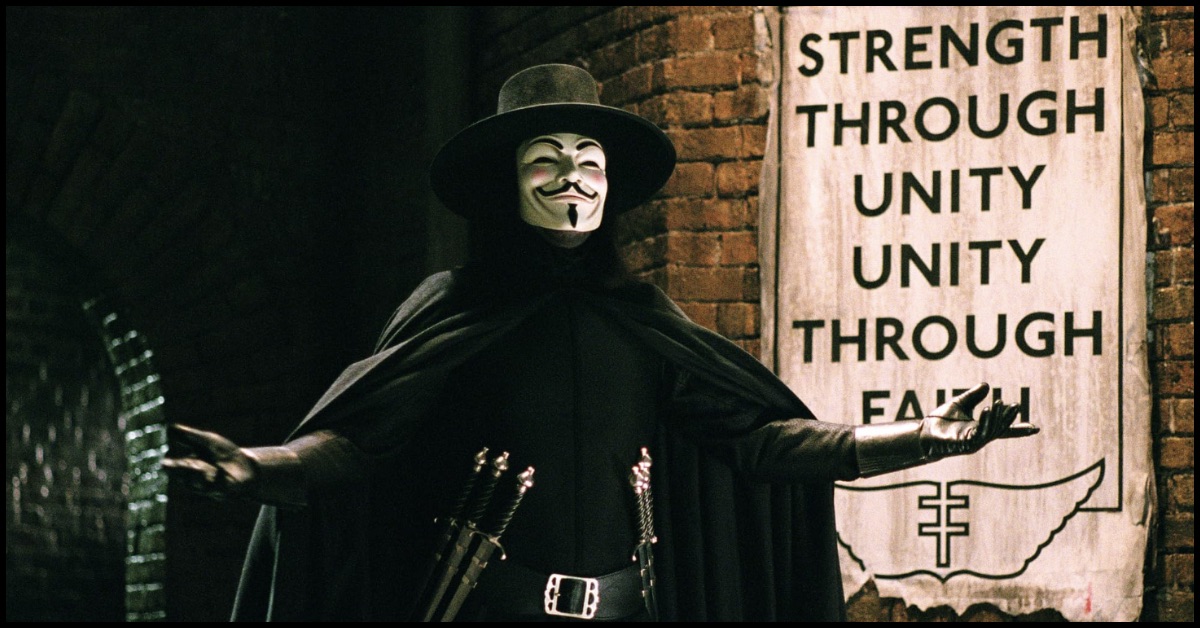Introdução
Você já se perguntou como uma religião pode misturar ficção científica, celebridades de Hollywood e uma dose de mistério? 🤔 A Cientologia (Scientology) é exatamente isso! Neste texto, vamos mergulhar em um dos assuntos mais intrigantes do mundo das estrelas e explorar por que tantas pessoas ficam fascinadas com essa religião que tem adeptos famosos e uma reputação cheia de polêmicas. Se você adora descobrir histórias curiosas enquanto pratica seu inglês, este é o lugar certo!
Enquanto você lê, vai poder aprender e praticar tópicos gramaticais importantes, além de expandir seu vocabulário com palavras e expressões que podem cair super bem nas suas conversas do dia a dia. Quer melhorar seu inglês e ficar por dentro dos segredos que rolam em Hollywood? Então vem com a gente, porque esse texto é a combinação perfeita entre aprendizado e entretenimento! 🎬
📖Aqui você encontra….
clique para verNível:
B1 (Intermediário)
Objetivo:
Praticar leitura, expandir vocabulário e se familiarizar com temas atuais e controversos.Tópicos gramaticais abordados nesse texto:
Present Simple: Usado para descrever fatos, hábitos e verdades gerais, como em “The Church of Scientology was founded in 1953” ou “Scientology quickly grew in popularity.”
Past Simple: Empregado para falar de eventos concluídos no passado, como “L. Ron Hubbard released a book” e “Armstrong has been seen attending Scientology events.”
Present Perfect: Usado para descrever ações que começaram no passado e continuam no presente ou têm relevância atual, como em “She hasn’t been seen publicly since 2007” e “Scientology has all the ingredients of a spooky narrative.”
Modal Verbs: Expressam possibilidade, capacidade, permissão ou obrigação. Exemplos incluem “may,” “might,” e “could” em frases como “Is she still involved, or has she distanced herself?” ou “Scientology might be considered a cult.”
Relative Clauses: Introduzidas por “who,” “which,” ou “that,” para fornecer mais informações sobre um substantivo, como em “who have lived countless lives” ou “the celebrities connected to Scientology.”
Reported Speech: Usado para relatar o que alguém disse sem citar diretamente, como em “the Church claims she is fine.”
Passive Voice: Comum em textos formais, a voz passiva aparece em “was founded” ou “hasn’t been seen.”
Conditionals: Usado para expressar situações hipotéticas, como em “Whether or not she remains connected to the religion.”
Comparatives and Superlatives: Aparecem em “the most talked-about cult” ou “one of the most famous bands.”
Gerunds and Infinitives: Usados para descrever ações como substantivos ou complementos verbais, como em “generating controversy” e “to improve their mental health.”
Cults

Since ancient times, mysterious cults have always captured people’s imaginations. The Knights Templar, a secretive religious order from the Middle Ages, intrigued many with their secrets. Followers of the god Bacchus were famous for their wild celebrations. In Ancient Egypt, there was the cult of the Serpent, and in Rome, the Saturnalia Rituals. These groups are perfect to dive into the Halloween vibe, right?
Today, however, one of the most talked-about “cults” doesn’t involve ancient gods or bizarre sacrifices (as far as we know, of course). Instead, it’s a modern religion that blends fame, power, and controversy: the Church of Scientology. But why is everyone talking about it right now? And what does Scientology have to do with celebrities and spooky stories? I know, so many questions—but let’s break it down together.
What is Scientology?

The Church of Scientology was founded in 1953 by L. Ron Hubbard, a science fiction writer. Yes, you read that right. Before founding the church, Hubbard released a book called Dianetics in 1950, where he proposed that people could improve their mental health by getting rid of negative memories through a process called “auditing.” During this process, church members are “interviewed” by auditors, who aim to revisit memories and traumas that prevent them from reaching their “full potential.”
At this point, it all seems pretty standard, right? However, Scientology goes much further. According to its teachings, humans are actually immortal spirits called “thetans” who have lived countless lives in different bodies. Here comes the most intriguing part: one of Scientology’s best-known beliefs is that a galactic dictator named Xenu, millions of years ago, transported the souls of beings from another planet to Earth, trapping them in human bodies. These trapped spirits cause problems in our lives and need to be “released” through the church’s processes, like auditing.
Scientology quickly grew in popularity, attracting celebrities and influential figures, while also generating controversy. Today, it’s viewed by some as a religion, by others as a lucrative business, and for many, as a cult. The Church has a strong presence in Hollywood, where many well-known celebrities are or were part of its ranks.
Controversies and Scandals: The Strange Side of Scientology

As Scientology grew, so did its controversies. The Church is frequently accused of practicing “disconnection,” where members are required to cut ties with anyone who leaves or criticizes the organization. Former members also report harassment and stalking after leaving the church, with constant phone calls, visits, and even threats.
Additionally, there’s the mysterious case of Michele “Shelly” Miscavige, wife of the current Scientology leader, David Miscavige. She hasn’t been seen publicly since 2007, sparking much speculation, although the Church claims she is fine. David has also faced accusations of abusive behavior, creating a culture of fear among Scientology members.
These and other scandals constantly push the Church into headlines, fueling public fascination and distrust. However, what draws the most attention is, without a doubt, the celebrities connected to Scientology. John Travolta, Elisabeth Moss, and the “poster boy” Tom Cruise are just a few examples. And now, Emily Armstrong, the new lead vocalist of Linkin Park, is also making waves with her connections to the Church.
Armstrong has been seen attending Scientology events and is the daughter of Scientology members, making her a second-generation Scientologist. However, she has never publicly spoken about her beliefs, and her earlier song lyrics suggest criticism of the Church.
Although she initially supported actor Danny Masterson, a Scientologist convicted of assault, Armstrong withdrew her support after the conviction, adding even more speculation about her ties to the Church.
Whether or not she remains connected to the religion, her entry into one of the world’s most famous bands has once again placed Scientology in the spotlight. Is she still involved, or has she distanced herself? Only time will tell.
Scientology: Always in the Spotlight
Scientology is deeply rooted in the world of celebrities and media, ensuring it remains a hot topic of conversation, whether for its bizarre teachings or the scandals surrounding it. It’s fascinating to think about how a religion founded less than 100 years ago has left such a profound mark on pop culture.
With its stories of aliens, power, and mystery, Scientology has all the ingredients of a spooky narrative—perfect for a Halloween night.
Conclusão: Segredos e mistérios
A Igreja da Cientologia desperta interesse não só por causa de seus seguidores famosos, mas também pelos segredos que esconde. Misturando religião, escândalos e ficção científica, ela se tornou um dos cultos mais comentados dos dias de hoje. E enquanto celebridades como Emily Armstrong continuarem em evidência, é provável que a Cientologia continue sendo um tema de discussão e teorias da conspiração.
O que você acha de tudo isso? Já ouviu falar de outro culto tão misterioso quanto a Cientologia? Deixe suas ideias e compartilhe suas teorias nos comentários! E não pare por aqui—Confira os nossos artigos e conheça um pouco mais desse mundo. Fique curioso(a) e vamos explorar juntos essas teorias malucas! 🚀✨
E agora, bora fazer um quizz?
What kind of Scientology character are you? 🌌🔮
You’re at a Hollywood party. What are you most likely to be doing?

Someone asks about your spiritual beliefs. ✡️ You say:

Your dream job is…

The leader of your group goes missing. You…

What’s your opinion on aliens?

Your favorite celebrity is...

What would you do if you could be a leader of your own cult?

You’re in the middle of an auditing session. What are you thinking?

What’s your favorite conspiracy theory?

What’s your Halloween costume this year?







Share your Results:
Gostou desse conteúdo? Se você é aluno da Apollo Academy, aproveite pra discutir com seu teacher; se não, tá esperando o quê? Marque uma experimental com a gente e comece sua jornada HOJE!




